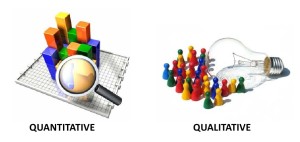It seems our world has decided that quantitative knowledge is the “crème de la crème” of social science, even though as humans we require so much more to really understand a problem. Pretty much every IR or PA school in the US stresses the importance of statistics and economics, and it seems like the more I go into this field, the more my job applications seem to want these quantitative skills. But, you know, there’s something specific about statistics or economics that we learn in those classes: there’s “error,” “deviation,” and “market failures.” These things you have to account for as parts of your survey responses that “went wrong.” But, what if instead of thinking of these as elements that “went wrong,” we thought of them as things that went right?
I think I had an “aha” moment the other day when my professor for Research Design said, “If you don’t have variation in your data, then it’s not a topic worth researching.”

That’s when it all clicked: if everyone thinks or acts the same way on something, then you’re not getting any interesting or new information.
I’ve had a range of interdisciplinary classes at Maxwell that go from data and numbers to ethnography and advertising, and I’ve realized just how important that range has been to me for understanding the world. People don’t operate along the lines of a regression in a statistics model– we all have variation in one form or another. That’s why stereotyping can be so dangerous and dehumanizing. But we get so caught up in the importance that the IR or PA field puts on statistics and numbers that we sometimes don’t even realizing we’re falling into the trap of valuing the “models” of people over actual people.
People are messy. People are emotional. People don’t fit into any sort of “box” that can be easily defined. And as future IR or PA practitioners, we’re going into a field that focuses primarily on the welfare of these messy, emotional people. As much as we try to simplify one another into a set of variables that can be regressed, in the end there will always be “errors.” It’s something you can’t help, because that’s what it means to be human. Even if we fit a certain demographic or description, there’s always going to be something about us that makes us different from others in that demographic. And, when it comes to motivating people to action, you need more than just those numbers. Individual stories are powerful. We want to know the “who” and “why” of a situation as opposed to just the “what,” and we’re more likely to be involved when we feel emotions about an issue rather than it just “making sense.”
During my time at Maxwell, I’ve loved taking the chance to really explore these different ways of seeing the world and of understanding people. In my International Management class, we learned the value of storytelling when advocating for a program. In my Culture in World Affairs class, we questioned the very nature of statistics. In my conflict resolution classes, we learned the importance of active listening and considering other viewpoints. In Research Design, we learned all about the ways these things can go awry when you’re in the field.

But, of course, I’ve also learned how to calculate a “p-value” and when to reject a null hypothesis. I’ve internalized the ideas of supply and demand and the consumer price index. I’ve learned how to create a budget and allocate personnel expenses. These skills are all incredibly useful and I will wholeheartedly admit that I’m glad to have gained them. But, it’s the multi-method and interdisciplinary nature of the Maxwell school that has had an incredible impact on how I think about difficult problems. Knowing that a program has a statistically significant relationship between two variables won’t be much use to me until I also know how it’s impacted the quality of people’s lives. I think this also ties into the obstacle of bridging the gap between “practice” and “theory” you hear about often in the IR field. Inquiry like this helps to connect the ideas that academics are coming up with to the real work that practitioners need to get the job done. And, I’d argue that the PA field needs this just as much.
In the end, I suppose to connect this back to Maxwell, I can say that the multi-disciplinary nature of the program has helped to develop me into a more discerning and thoughtful person and given me the knowledge to go out into the world and make a difference. After all, when you can go from defining citizenship to then critiquing nationalist arguments inherent in some of these definitions, you know you’re doing something right.
Great article Beth!